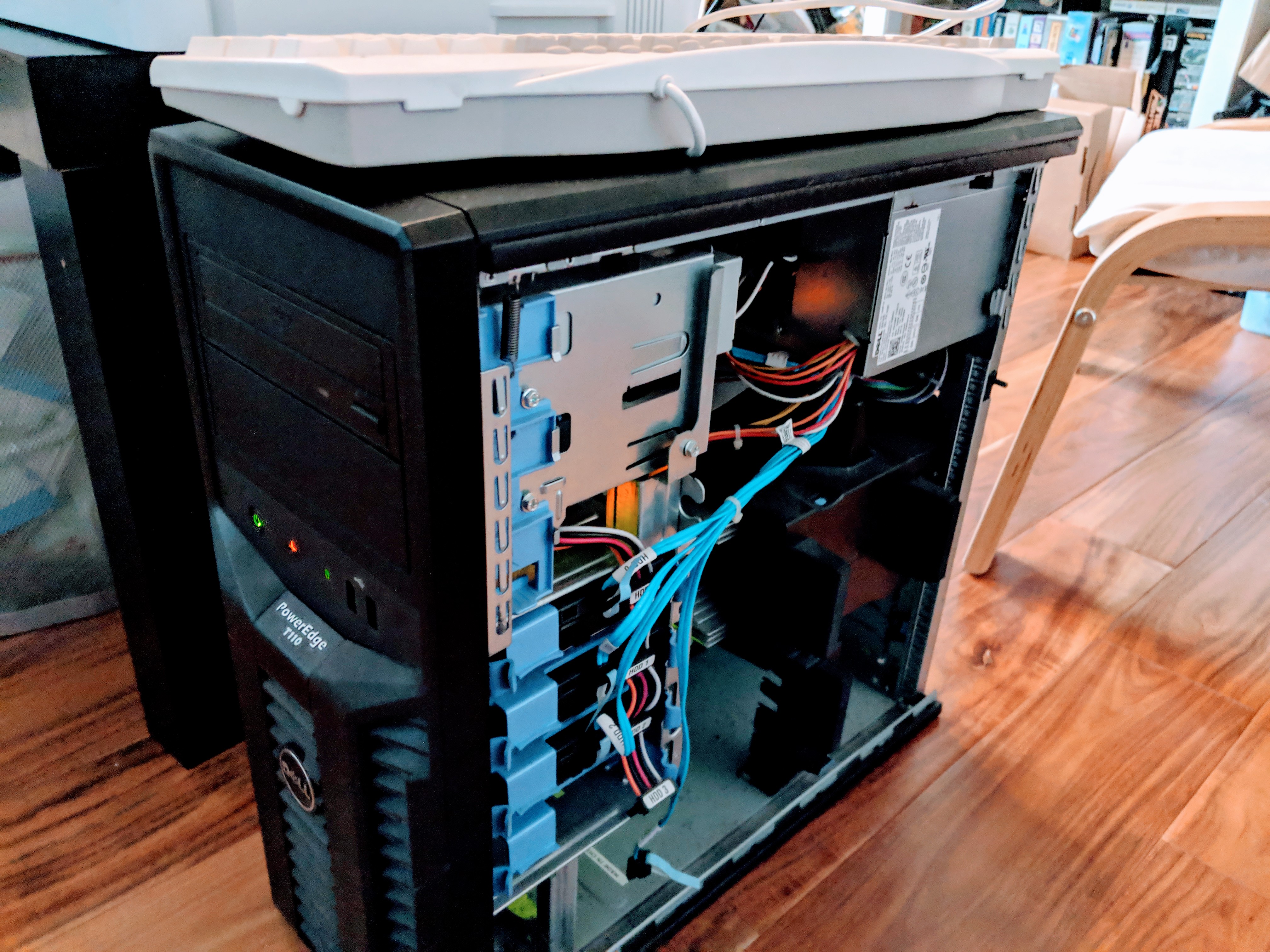This morning, while sitting on the bed reading and listening to NPR’s “Morning Edition” streaming over the internet, I heard a story about Windows Vista being hacked – intentionally – by a Polish security expert [ZDNetVista]. Microsoft handed out pre-release copies to security experts, who then took a crack at breaking the system. It was broken by Joanna Rutkowska, who used the human factor to break the system. Some referred to it as “cheating” – without the fact that a person needs to use the computer, it would be secure. However, all she did was use a popup window, asking the user to click “OK”, to bypass system security and crack Vista. As one commentator on NPR said, if you want a secure OS it should be “entombed in concrete and dropped to the bottom of the sea.”
All of this got me thinking about Linux. Vista has been delayed over a year in order to “perfect” its security system, a pipe dream if ever I heard one. Linux, however, is released on a continual basis (“linux” exclusively refers to the kernel of the operating system). Linux, bundled with open-source software, is released several times annually by “distributions”, or configured and packaged collections of software. I run “Fedora Linux”:http://fedora.redhat.com, which is the community driven face of Redhat Linux. I use Fedora Core 5 – the 5th official release of Fedora Linux since 2004 – for all of our linux desktops at home, and an earlier, more mature release for our webserver.
This is pretty much officially the 8th anniversary of my switch to linux. I did so in the summer of 1997, back when the software was stable but much less polished than the modern flavors. Then, I went from Windows 95 (which crashed at least once a week, typically during critical paper-writing sessions) to Debian. I spent a few weeks that summer just getting Linux installed, and I had picked Debian because (according to a magazine article), “even a chicken can install it”. Linux has come a long, long way since then, with clean and aesthetically pleasing desktops, graphical boot loaders and distribution installers, GUI interfaces to kernel installation, self-organizing music players, and fast web browsers (no more Netscape!). One thing that it’s always had: long uptimes. I impressed college friends when I told them that my linux PC stayed up on the internet without interruption for three months, no crashes. They started lamenting their Windows machines on the spot. And, linux is FREE.
I prize linux for its stability. For instance, the Zope webserver I run as part of cooleysekula.net has been up for *20 days 18 hours 23 min 45 sec*. The only reason that number is so low is because of a series of blackouts and brown-outs in California – nothing to do with Linux – and even that blow was softened by the UPS I keep the server on (good for 20-30 minutes or buffer power). Typically, I keep cooleysekula.net up for months, taking it down for vacuuming or new kernel installation (need to reboot) or hardware maintainence. Speaking of hardware, linux’s fundamentally lightweight footprint makes even a throw-away 300 MHz desktop PC with 700 MB of memory a convenient webserver and distributed filesystem hub for the tech-saavy home.
I also love the flexibility of linux. One day I can make it look like nothing else in creation, the next I can mimic Windows (I do this for guests, so that they feel “at home”), and the next day Mac OSX or even the Apple IIE. Whatever. Choice isn’t always good – I don’t like to choose between lots of crap – but flexibility is good, and that’s the nice thing about Linux. Since the inception of the Linux desktop, its look and feel have been completely under the control of the user. Windows only managed that around the time of Windows XP SP2.
And now, while Linux is delivering security, stability, flexibility, upgradeability, and useability, Windows Vista is delayed until next year to perfect its security. The problem with the Microsoft release cycle is that it’s just not continuous enough to keep it up-to-date. Linux is always fresh – Windows was fresh a year before it was released. Windows is prepared to stop threats a year old, while linux is updated on-the-fly to address new threats and new technologies immediately. MMM. Smell that fresh OS.
.. [ZDNetVista] “http://news.zdnet.com/2100-1009_22-6102458.html”:http://news.zdnet.com/2100-1009_22-6102458.html



